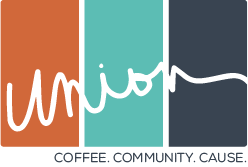I’ve suspected for a while that we live at the cliff’s edge of a new society. Growing up, I learned the names of cities important to the civil rights movement: Little Rock, Selma, Birmingham, Montgomery, Memphis. Their names evokes stories that changed our collective American identity.
In recent years, there’s been a new list: Ferguson, Baltimore, Charleston, McKinney, Baton Rogue, St. Paul. Today my city. My. City. Dallas. Dallas just joined a list. I am mad as hell at these snipers who wrote Dallas into history books with bullets, but I refuse to let them determine how the story ends.
Dallas will be different from the snipers’ dreams.
Let’s be clear: Dallas has a lot of race problems. Our school district is among the most segregated in the nation. The ethnographic map of Dallas has such clear divisions between White, Black, Hispanic and “other” that it looks like it was designed that way—because in many ways it was. We have some of the greatest wealth disparity in the United States and the gap between rich and poor in Dallas is widening. Other major cities have similar problems, but Dallas will be different.
Dallas will be different. Although we are broken by race, I have yet to hear city leadership deny the problems. Our city council members, Chief of Police and Mayor know that there are problems. They talk about them frequently and are honestly struggling to find solutions. This is true of the general public as well. When we fight, we fight over how to help—not whether or not help is needed, called for or expected. The first step in recovery is admitting you have a problem. Dallas admits its problems. That gives me hope.
Dallas will be different. When I listen to the more innovative and well-known leaders across Dallas, I hear a refrain of “collaboration over competition.” True Dallas change agents know how to work across the boundaries our society assumes. Dallasites understand our problems are too great for any one person or any one sector to overcome. I admire leaders who are more concerned about collective benefit than personal credit. I am grateful to say that I have a lot of Dallas leaders to admire.
Dallas will be different. In the wake of Alton Sterling and Philandro Castile’s deaths at the hands of police officers, over one hundred people gathered at Union, the non-profit coffee shop that I help lead. While emotions were raw, people from different races and backgrounds were able to talk, discover new friendships and honor each other’s pain. Uniformed police officers were there. They expressed their anger at what had happened in Baton Rogue and St Paul. They made personal promises to people in the room to do more—in both formal in informal ways—to make sure Dallas doesn’t become another city on the list. Before shots penetrated downtown peace, protestors posed for pictures with Dallas Police Department officers. When we at Union who believe #blacklivesmatter heard that officers had been shot, we prayed. We hugged. We cried.
Even as I cry out, “Lord, how long,” I am confident that Dallas will be different from the world’s expectations. We are going to surprise with our capacity to love, our commitment to heal and our conviction to be better. Snipers have once again written Dallas into history books with bullets, but we get to write the story that shapes our nation in response.
Dallas will be different if we choose to be.
Rev. Michael Baughman
Community Curator
Union: coffee. community. cause.

